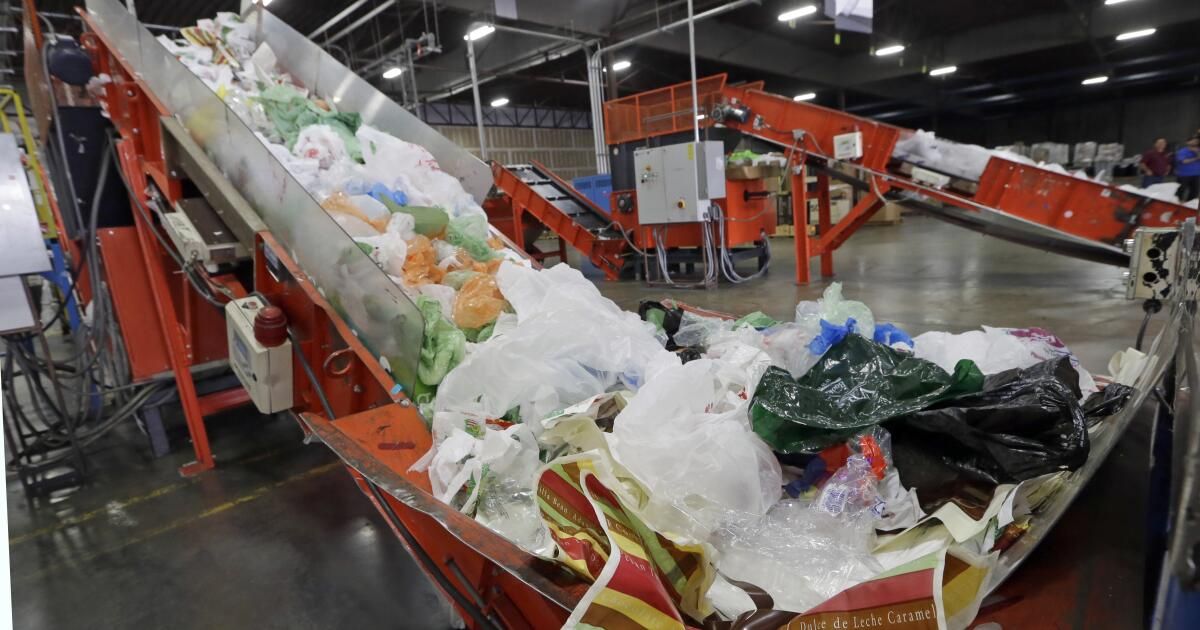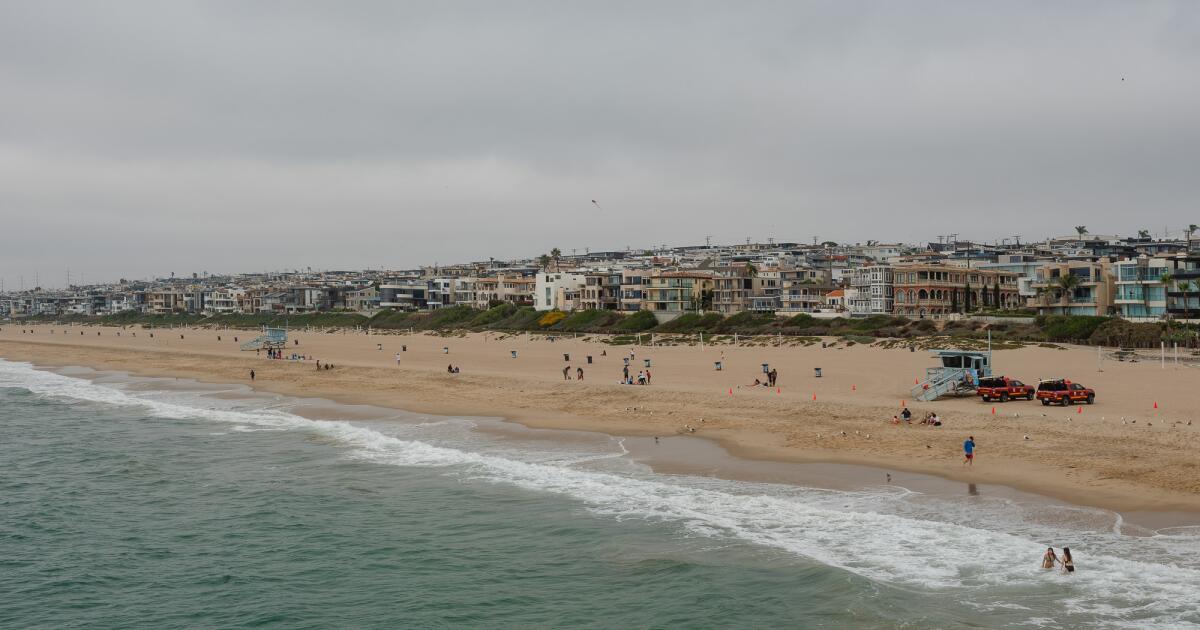About 10 years after California unsuccessfully tried to ban plastic bags in grocery stores, state lawmakers have passed a law they say will forever end the “paper or plastic” choice at the checkout.
“Instead of asking consumers if they want paper or plastic bags at checkout, they will simply be asked if they want paper bags,” said State Senator Catherine Blakespear (D-Encinitas). “This simple change eliminates plastic bags at the point of sale and helps California significantly reduce the plastic waste that is polluting our environment and waters.”
Blakespear and Assemblywoman Rebecca Bauer-Kahan (D-Orinda) had introduced identical legislation (Assembly Bill 2236 and Senate Bill 1053) that sought to close the loophole that allows grocery stores to offer “reusable” plastic bags in the checkout line for a small fee. The legislation passed Wednesday and now moves to Gov. Gavin Newsom’s desk for his signature.
Aggressive and shocking reports on climate change, the environment, health and science.
Earlier this year, consumer advocacy group CALPIRG released a report showing that 157,385 tons of plastic bags were thrown away in California in 2014, and that by 2021, the number of plastic bags thrown away had skyrocketed to 231,072 — a 47% increase. Even accounting for population growth, the number rose from 4.08 tons per 1,000 people in 2014 to 5.89 tons per 1,000 people in 2021.
According to experts, the increase is due to a 2014 law that was intended to ban the use of plastic bags, which allowed supermarkets to offer customers thicker, heavier plastic bags that could, in theory, be reused after shopping. However, in reality, those bags were rarely used after customers unloaded their purchases at home.
“On average, people use a plastic bag for 12 minutes to carry their groceries home, and it then remains in our environment for hundreds of years, breaking down into microplastics and polluting our soils, our waterways and our own human bodies,” Blakespear said at a press conference this week.
The new legislation was backed by both environmental groups and the California Retailers Association, an unusual alliance but one that likely helped the bill pass the Legislature.
“We’ve been involved in this policy,” Louis Brown, a representative for the trade group, said at the same news conference. “We’ve seen our companies make the transition to be more environmentally sustainable. We’ve seen our customers make the transition, and so we believe that when January 26 comes around, when only paper can be sold at retail outlets, our members will support it. Our customers will support it.”
In fact, a majority of Californians say plastics and marine debris are a problem, according to a survey by the Public Policy Institute of California.
The new law, if signed by the governor, would take effect on January 1, 2026. The law focuses on cash register bags, not bags used to hold produce or wrap food that could cause contamination, such as meat. Additionally, beginning January 1, 2028, the definition of a recycled paper bag would change from one made from 40 percent recycled material to one made from more than 50 percent recycled material.
Other plastic and waste-related bills were also passed this week, including one that would ban the use of various “sell by” labels on food and instead require the language and meaning to be standardized so consumers understand what it means.
“Phrases like ‘enjoy by,’ ‘expires on,’ ‘sell by’ — and sometimes even just a random date with no label at all — offer little information to consumers about the quality or safety of the food they are eating,” said Assemblywoman Jacqui Irwin (D-Thousand Oaks), author of one of the bills, AB 660, at a news conference Monday.
The other bill, AB 2214, would require state agencies to begin developing guidance and language to address the growing problem of microplastic pollution.
Petroleum-derived plastics do not decompose, but instead break down over time into smaller and smaller fragments, which researchers have identified in environments around the world, as well as in the tissues and fluids of animals and humans.
“The goal is to strengthen California’s leadership on microplastics,” said Alison Waliszewski of 5 Gyres, an anti-plastics advocacy group, by “empowering” state agencies like the Ocean Protection Council and giving them “more power to be able to implement strategies and make recommendations more expeditiously.”
Fact Sheet
Towards a more sustainable California
Receive Boiling Point, our newsletter exploring climate change, energy and the environment, and be part of the conversation – and the solution.
You may occasionally receive promotional content from the Los Angeles Times.












